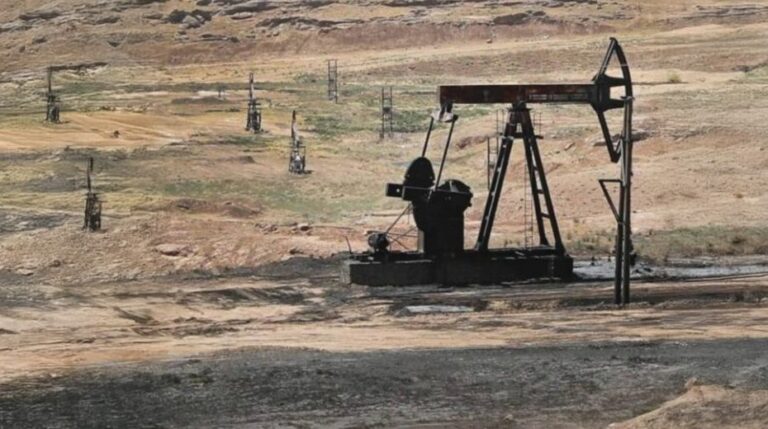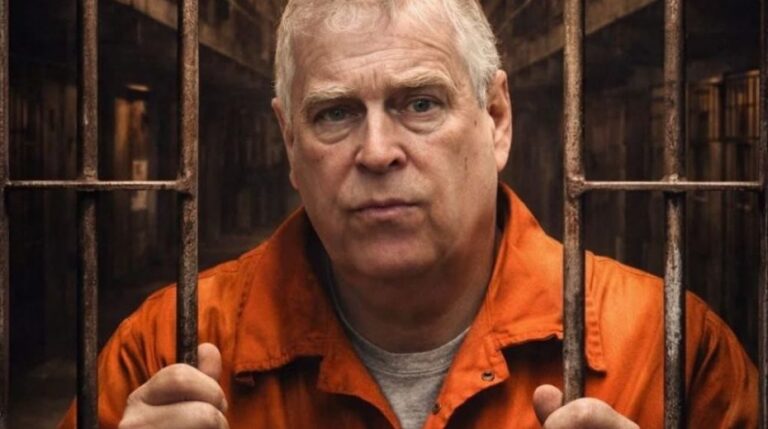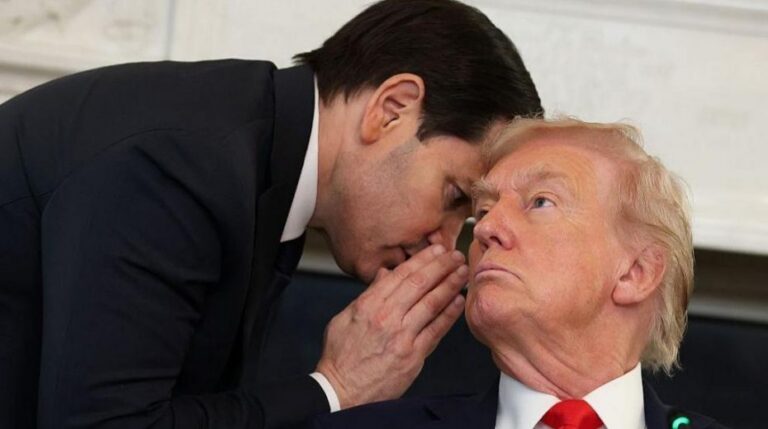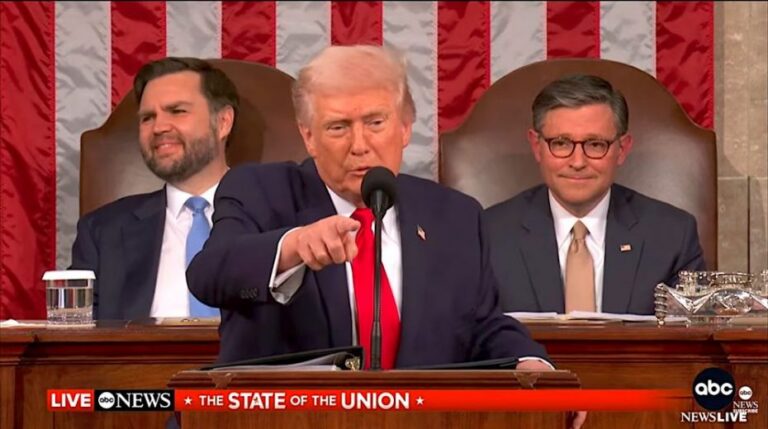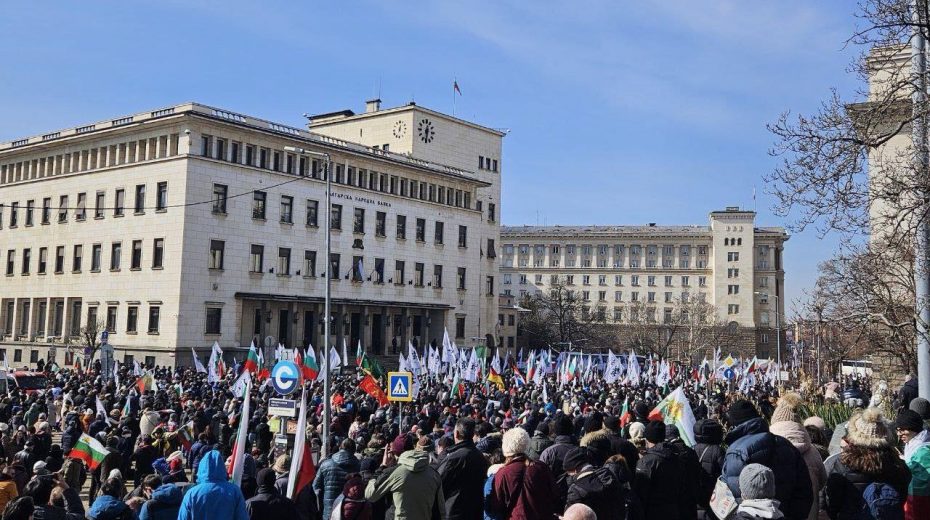
In Bulgaria, the discussion around the euro transcends economic concerns, touching upon issues of sovereignty and national autonomy.
“We will tell these people two things: that they are not welcome in Bulgaria, and that Bulgaria does not want the euro. Even if they force us into the eurozone, the consequences will be far greater than they could ever imagine. The eurozone will collapse, and Bulgaria will regain its financial independence.”
These remarks come from Kostadin Kostadinov, head of the far-right “Revival Party” (Vazrazhdane), known for its pro-Russian stance and opposition to NATO and the EU, as well as its Euroscepticism.
The party, alongside civil movements such as the “Leva Front,” gathered outside the Bulgarian National Bank (BNB) protesting European Central Bank President Christine Lagarde’s visit. They represent the core resistance against Bulgaria’s scheduled euro adoption on January 1, 2026.
The government’s euro adoption plan, positioned as a step towards “European integration,” has sparked fears about the loss of economic independence and national control among a significant portion of the populace. Since the announcement, large-scale protests have erupted nationwide, bringing together nationalist and leftist factions opposing what they term “Brussels’ economic domination.”
Similar to Romania and Moldova, Bulgaria’s political landscape is sharply split over EU integration. Support for Europe tends to be stronger among urban, younger, wealthier, and more educated citizens, while skepticism is more common in rural, working-class communities with lower incomes, many of whom also reject NATO and Western influence.
Polls such as Eurobarometer conducted in spring 2025 reveal a nearly even divide: about 43% back the euro, whereas roughly half reject it.
The anti-euro coalition includes elements from both the far right and left, mirroring trends found elsewhere in Eastern Europe.
This current wave of “euro anxiety” reflects Bulgaria’s ongoing, often fraught, path towards European integration.
What is the ERM II mechanism?
Bulgaria has participated in the Exchange Rate Mechanism II (ERM II) since 2020. This system obliges nations aiming to adopt the euro to maintain a fixed exchange rate relative to the euro and meet stringent fiscal rules beforehand.
Put simply, ERM II functions as a “waiting room.”
To join, countries must stabilize their currency against the euro, harmonize fiscal policies—including budgets, debt management, and inflation control—with the Brussels–Frankfurt axis, and sustain this alignment for a minimum of two years.
While the EU labels this phase an “adaptation process,” Eurosceptics describe it as an “economic quarantine,” highlighting common challenges faced by ERM II countries like Bulgaria: stagnation, shrinking public sectors, youth migration, dominance of foreign capital due to inexpensive labor, and reduced public investments.
Many Bulgarians view this process less as a choice and more as an outcome of persistent pressure from Brussels. Despite ongoing inflation issues, both the European Commission and the European Central Bank maintain that the timeline for euro adoption is fixed and irreversible.
Prime Minister Dimitar Glavchev has portrayed the transition as “a demonstration of Bulgaria’s commitment to integrating into the heart of Europe,” yet such assurances fail to convince much of the country’s poorer population.
Against this backdrop, the Revival Party characterizes the loss of the national currency as “a new form of dependency.”
Kostadinov encapsulates the party’s viewpoint succinctly:
“The lev is the symbol of our independence. The euro is Brussels’ yoke.”
The demand for a referendum
The Revival Party has initiated a campaign for a national referendum, insisting that the public should decide on this critical matter. Under the banner “Defend the lev, not the euro,” thousands have joined protests.
Interestingly, President Rumen Radev originally proposed holding a referendum, although parliament later rejected the proposal.
Opposition to the euro extends beyond nationalist circles. Communist factions, leftist unions, smallholder associations, and independent economists also resist euro adoption, warning it would turn Bulgaria into “Europe’s cheap labor reservoir.”
In recent weeks, demonstrators have filled the streets of Sofia, Plovdiv, Varna, Burgas, and other cities, voicing slogans like “The lev is ours,” “No to the euro,” and “Decisions are made in Sofia, not Brussels.”
Clashes between protesters and police have grown more frequent, with the latest intense confrontation occurring near Sofia’s parliament.
Some protesters went as far as burning EU flags, while farmers blocked traffic with their tractors.
Alongside the Revival Party, groups such as the Movement for Left Alternative and various labor unions warn that euro membership will leave Bulgaria without control over its economic affairs.
The government maintains its position firmly. Finance Minister Lyudmila Petkova asserts that switching to the euro will stabilize prices and enhance investor confidence.
However, those skeptical of Western influence perceive these claims as mere validation of neoliberal policies imposed by EU financial bodies. Despite joining the EU in 2007, Bulgaria remains Europe’s poorest nation, stuck in a cycle of low wages, soaring inflation, and economic reliance on foreign capital.
For Bulgaria, the euro issue is no longer solely about economics—it embodies a struggle for national sovereignty. While governments promote “economic integration,” rising economic hardships continue to fuel mounting anti-EU feelings across the continent.


